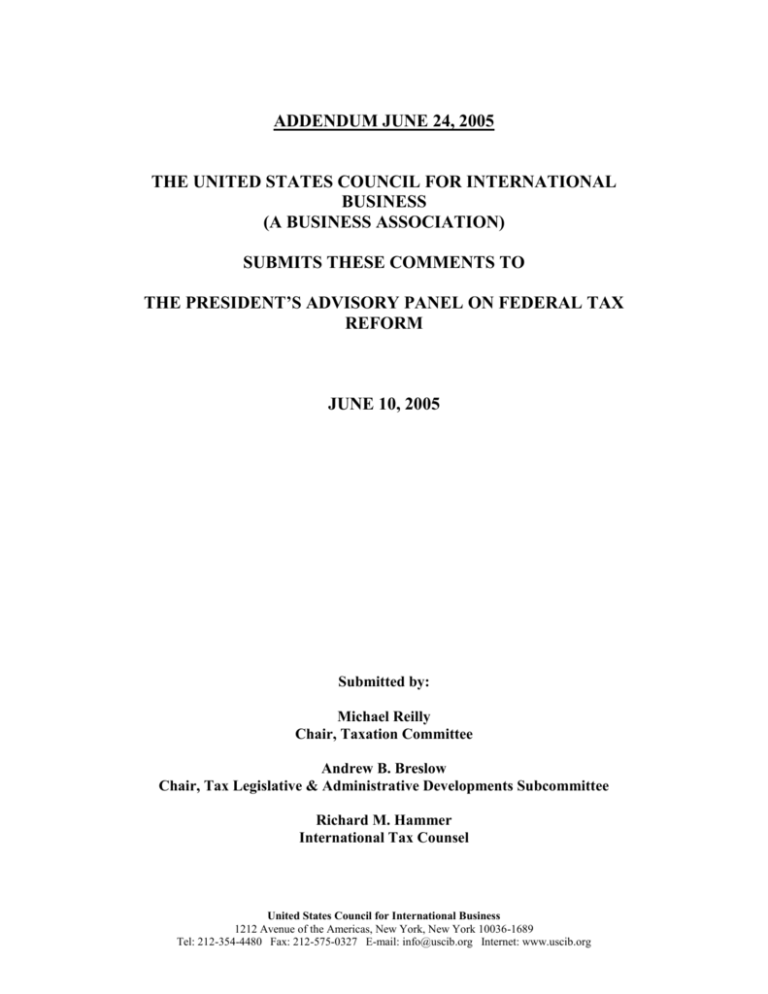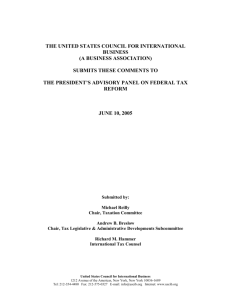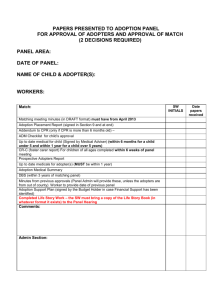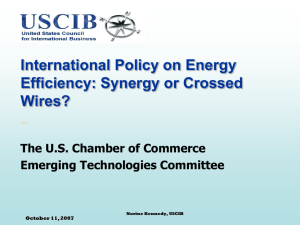COMMENTS FOR
advertisement

ADDENDUM JUNE 24, 2005 THE UNITED STATES COUNCIL FOR INTERNATIONAL BUSINESS (A BUSINESS ASSOCIATION) SUBMITS THESE COMMENTS TO THE PRESIDENT’S ADVISORY PANEL ON FEDERAL TAX REFORM JUNE 10, 2005 Submitted by: Michael Reilly Chair, Taxation Committee Andrew B. Breslow Chair, Tax Legislative & Administrative Developments Subcommittee Richard M. Hammer International Tax Counsel United States Council for International Business 1212 Avenue of the Americas, New York, New York 10036-1689 Tel: 212-354-4480 Fax: 212-575-0327 E-mail: info@uscib.org Internet: www.uscib.org COMMENTS FOR THE PRESIDENT’S ADVISORY PANEL ON FEDERAL TAX REFORM SUBMITTED BY THE UNITED STATES COUNCIL FOR INTERNATIONAL BUSSINESS JUNE 24, 2005 ADDENDUM In the June 10, 2005 submission to the above named Presidential advisory panel (the Panel), the United States Council for International Business (USCIB) discussed, and opined on, certain key policy issues that must be addressed by the Panel in considering a major overhaul of the Internal Revenue Code (the Code), namely, the preference for instituting an integrated tax system (i.e., terminating the double taxation of corporate earnings), and the absolute necessity of enhancing the international competitveness of U.S. business. The goal of enhancing the competitive position of U.S. business would be best served by a complete repeal of Subpart F of the Code, to strengthen deferral by not unfairly burdening unremitted overseas earnings, and ensuring the establishment of the best possible foreign tax credit mechanism to minimize international double taxation. As part of any fundamental tax reform package, the Panel should bear in mind that the competitiveness of U.S. business would be further improved by ensuring that the United States itself became the most competitive location in which to establish and maintain a business enterprise. Today, as the global economy expands, countries are lowering tax rates and tax burdens so as to encourage foreign business investment into their jurisdictions. In the recent decades, the United States has been a global leader in attracting foreign direct investment. As other overseas markets mature, however, and thus provide alternative growth opportunities, the U.S. should examine, and discard, tax policies that discriminate against capital intensive, job creating foreign investment. In other words, our nation should strive to create and maintain a tax system which attracts and retains both foreign and domestic business investment and avoids disincentives for such investment. Furthermore, any form of discriminatory tax measures in this country aimed at foreigners could generate the enactment of retaliatory measures by our trading partners to the detriment of U.S. business. United States Council for International Business 1212 Avenue of the Americas, New York, New York 10036-1689 Tel: 212-354-4480 Fax: 212-575-0327 E-mail: info@uscib.org Internet: www.uscib.org








